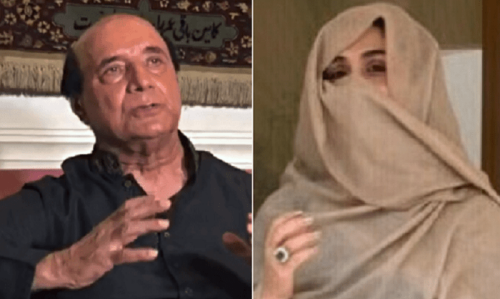FOR the past few years, dubiously recorded private conversations of public figures have been released to the media, or uploaded on social media, in an effort to sully reputations. Victims of this detestable practice have included people from the sporting world, judges and politicians including prime ministers, and even their relatives. The million-rupee question is: who is responsible?
The Islamabad High Court attempted to answer this query while hearing petitions related to illegal wiretapping. During Wednesday’s hearing of former first lady Bushra Bibi’s case, the attorney general told the court that the ISI, FIA and IB are “not allowed to record any conversations”, adding that if any government agency was involved in this practice, “it is doing so illegally”.
Further, the IHC was reportedly told that the ISI cannot trace the source of the audio leaks. Other intelligence agencies like the IB and FIA, too, have previously denied knowledge of the source of similar leaks. So if the nation’s top agencies cannot trace the culprits, then who can?
It is common practice the world over for intelligence agencies to monitor suspected hostile actors and foreign agents who intend to harm the country. To do so is no doubt necessary — while following SOPs to avoid violating the rights of innocent people. But to extend these powers to secretly record personal conversations of public figures and private citizens cannot be justified.
What national security objectives are served by illegally recording personal calls or messages, and then releasing these, initiating a frenzy in the media and cyberspace? In fact, the policy of electronic eavesdropping by powerful quarters is a continuation of the practice of maintaining ‘files’ on public figures, and releasing these as and when ‘required’.
As for those reacting gleefully to their opponents’ dirty laundry being aired publicly through such means, they should remember that the same weapon can be deployed against them at some point. Both Imran Khan and Shehbaz Sharif can testify to this, as the conversations of both gentlemen were leaked from the time they were in the Prime Minister’s Office.
The IHC has said it could appoint local and foreign experts in case the state failed to provide information about the leaks. The solution could lie in appointing an empowered commission to investigate the source of the leaks.
Forensic experts, as well as those familiar with the technology in question, can be brought on board to trace the culprits, and help end this vile practice. Illegally recording and releasing personal conversations has no place in a democratic polity, and is more suited to police states. If the state does not want to be seen as complicit in these shady activities, it must endeavour to unveil the source of the leaks.
Published in Dawn, December 22nd, 2023















































Dear visitor, the comments section is undergoing an overhaul and will return soon.